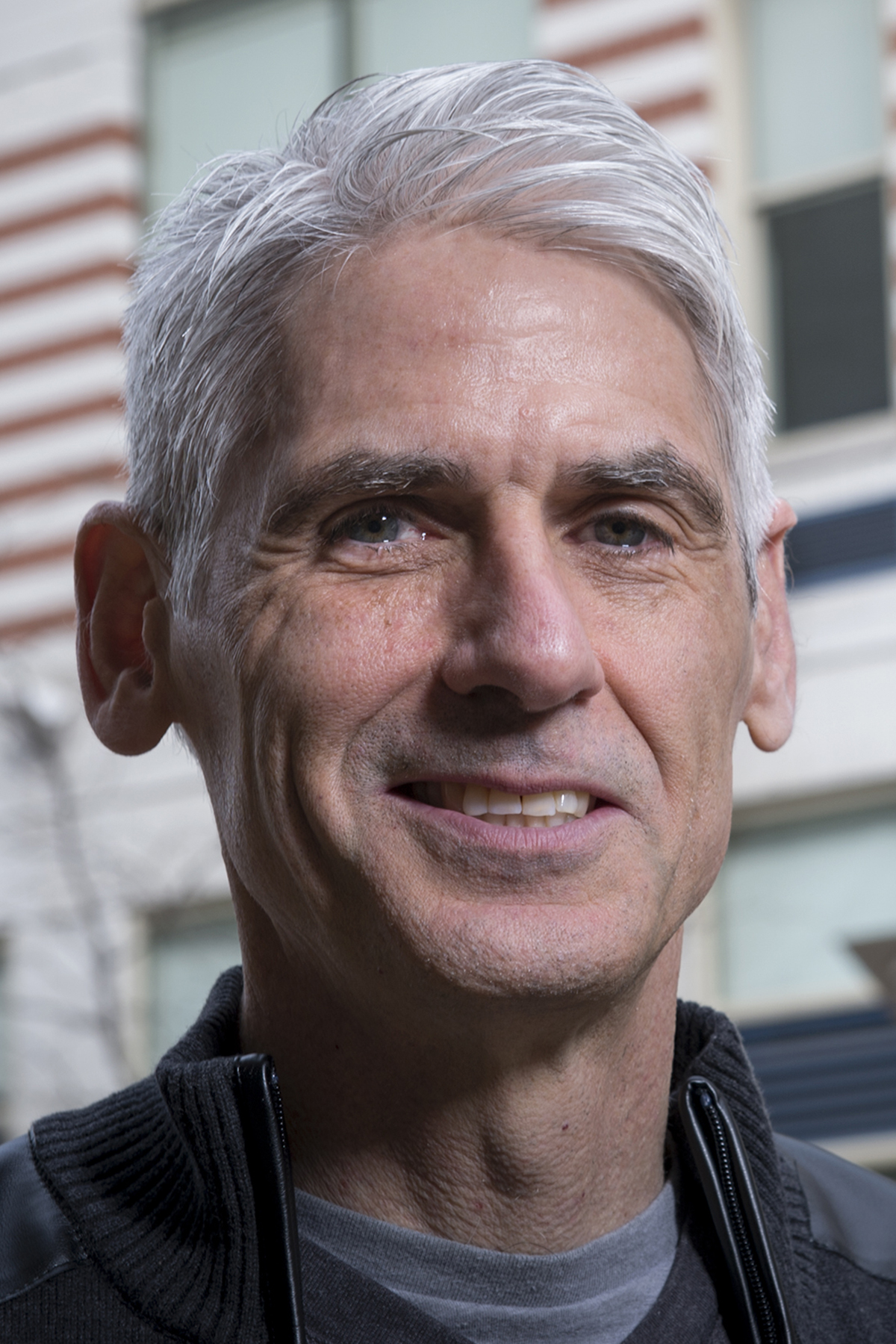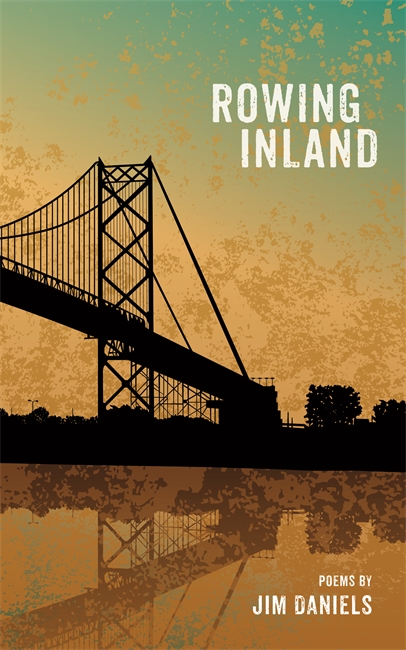Interview: Jim Daniels
 Midwestern Gothic staffer Audrey Meyers talked with poet Jim Daniels about his book Rowing Inland, being a poet of place, learning about oneself through writing, and more.
Midwestern Gothic staffer Audrey Meyers talked with poet Jim Daniels about his book Rowing Inland, being a poet of place, learning about oneself through writing, and more.
**
Audrey Meyers: What is your connection to the Midwest?
Jim Daniels: I was born and grew up in and around Detroit, spent three years in Ohio, and have spent many years living in Pittsburgh, which is where I believe the Midwest ends, though others would probably say it ends at the Ohio border.
AM: How has living in the Midwest impacted your writing?
JD: I am a poet of place, so a majority of poems are set in the Midwest, so it’s the firm ground on which my poetry treads.
AM: What inspired you to write about Metro Detroit in Rowing Inland?
JD: Most of my books, both poetry and fiction, use the Detroit area as a setting, so Rowing Inland is a continuation of my obsession with industrial, urban, Midwest landscapes. I find that a lot of literature—particularly poetry—tends to either ignore or distort working-class life, and I’ve always seen it as part of my work to say, hey, these lives are important.

AM: Since Rowing Inland is your 15th book of poetry, what inspires you to keep writing?
JD: Like most writers, I don’t need inspiration to keep writing. I need to write—it’s a big part of what sustains me in my daily life. I just hope I can continue to find readers interested in what I have to say.
AM: A lot can be said with just the placement of words in poetry. How did you use this technique when writing Rowing Inland?
JD: Since I write fiction and screenplays as well as poems, I work to take advantage of the poetic line to create music and emphasis, and work on the intense compression of language into imagery, important characteristics of poetry that distinguish it from other kinds of writing.
AM: Since Rowing Inland is about traveling through time and history, how do you think your style carries the emotions of your readers to another place?
JD: The challenge for me as a poet is to take readers to the times and places of the poems and bring them to life, no matter where or when they are set. I often use narrative to try and bring the readers into the scenes, and lots of concrete detail. I spend a lot of time thinking about titles and opening lines because I want readers to land in the poem with their feet on solid ground.
AM: How were your own emotions utilized when writing this poetry?
JD: The emotions are the sparks for the poems. Without the emotion, the poem is going to fall flat. If I don’t care about my subject, readers aren’t going to care.
AM: What did you learn about yourself as a poet when creating Rowing Inland?
JD: I am always learning about myself as a person when writing. As a poet, I was reminded what an important role Detroit continues to play in my work—I seem to still have a lot to say about it.
AM: How did you infuse humor into a community’s struggle for survival?
JD: While I’m not consciously trying to get humor into the poems, humor is certainly a survival technique to help us cope with hard times, and Detroit’s sure had more than its share of hard times over the years.
AM: What do each 4 segments of your book represent? Why did you divide your book into these parts?
JD: I see the sections as representing family, community, childhood, and social class, though there’s obvious overlap across the sections.
AM: What key life experiences influenced your poetry in Rowing Inland?
JD: One event that shows up in three poems in the book is the death of a girl who lived down the street from me in a freak fire. She was the first girl I kissed, and she was the first person I loved who died. First kiss, first death—that combination creates a pretty powerful haunting.
One other thing that I found myself doing here was consciously trying to create a sense of Warren as a community as opposed to Detroit. I tend to say I’m from Detroit because most people outside the Detroit area are not familiar with Warren, but anyone from that area knows Warren is a very different place, on the border with Detroit, but very different. White working-class, mostly, but that is slowly changing.
AM: What do you hope readers take away from your poetry?
JD: For one thing, I value clarity in my writing, so I’m hoping readers find the poems clear and accessible, regardless of their geographic or economic backgrounds.
AM: What’s next for you?
JD: Current projects include two forthcoming books of poems, Street Calligraphy and The Middle Ages, and two anthologies, Challenges to the Dream: The Best of the Martin Luther King, Jr. Day Awards at Carnegie Mellon University, and, with my friend M.L. Liebler, I Just Want to Testify: Poems About the Music of Detroit. I continue to work on short stories and screenplays, and to collaborate with the photographer Charlee Brodsky, writing poems to go with her photos. We currently have an exhibit of our work on display at Michigan State University
**
Jim Daniels’ fifteenth book of poems, Rowing Inland, was published earlier this year by Wayne State University Press. Forthcoming books include Street Calligraphy, Steel Toe Books, and The Middle Ages, Red Mountain Press. His previous book, Birth Marks, was the recipient of the Milton Kessler Poetry Book Award, and the Poetry Gold Medal in the Independent Publisher Book Awards. His fifth book of short fiction, Eight Mile High, was a Michigan Notable Book and a finalist for the Paterson Fiction Prize. “The End of Blessings,” the fourth short film he has written and produced, appeared in sixteen film festivals in 2016. His poems accompanying the photographs of Charlee Brodsky were recently displayed in galleries at Robert Morris University and Michigan State University, and his poem “Factory Love” is displayed on the roof of a race car. His poems have been featured on “Prairie Home Companion,” Garrison Keillor’s “Writer’s Almanac,” in Billy Collins’ Poetry 180 anthologies, and Ted Kooser’s “American Life in Poetry” series. A native of Detroit, Daniels is a graduate of Alma College and Bowling Green State University. He is the Thomas Stockham University Professor of English at Carnegie Mellon University.






